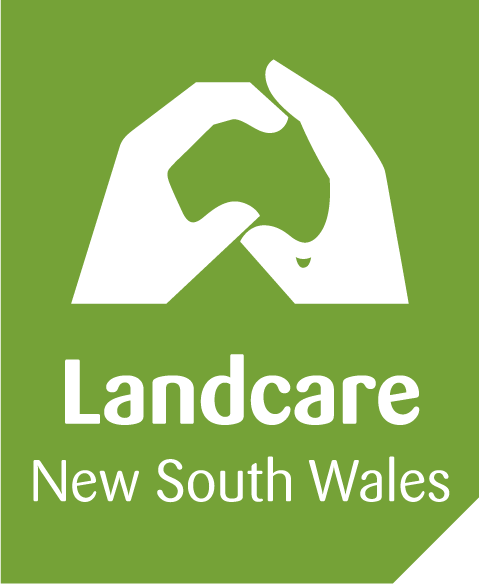Event Type
Landcare Region
BCT Region
Rainforests once covered much of Australia. Today rainforests cover only 0.25% of the continent, 17% of which occurs in NSW. In the Mid-North Coast, we are blessed with high rainfall and a warm climate that allows a diverse array of rainforest communities to exist. Away from the salt-affected rainforest communities of the coastal fringe, rainforests can reach towering heights, and with their characteristic closed canopy, it can be very difficult to differentiate tree species within these wonderful ecosystems.
We are honoured to have Dr Bill McDonald, retired rainforest botanist from Queensland, present his vast knowledge of and experience with rainforest plant ID.
Participants will start by learning how classical botanical identification techniques, such the morphology of flowers and fruits, are not very practical when identifying Australian rainforest trees and shrubs. Bill will guide participants through the process of differentiating rainforest species according to easily collated information about habit, bark type and texture, and leaf arrangement and morphology, as outlined in the famous "Red Book", which he co-authored. With reference and reverence to the late Alex Floyd, Bill will give an overview of local rainforest ecology, composition and distribution in NSW, particularly with respect to underlying geology.
We will work with live plant samples in a 'laboratory' setting in the morning, and after lunch we will take a wander through the local rainforest and turn our hand at field observation.
This a is beginner workshop, and no prior botanical knowledge is necessary. It will also be suitable for those people who have dabbled in a little plant ID, but who have limited knowledge of rainforest species.
There will be some hand lenses available for communal use on the day, but participants are encouraged to bring their own if possible. "The Red Book" will be available for purchase on the day.
This is a very special opportunity to meet a highly respected rainforest scholar and learn from one of the very best in the field.
To find out more about Dr Bill McDonald and his publication go to this link: Rainforest Trees and Shrubs
Rainforest Trees and Shrubs and will be available for purchase on the day.
This event is possible thanks to the shared work of the NSW Biodiversity Conservation Trust and Landcare NSW under the Private Land Conservation Matters project, supported locally by MidCoast Council.
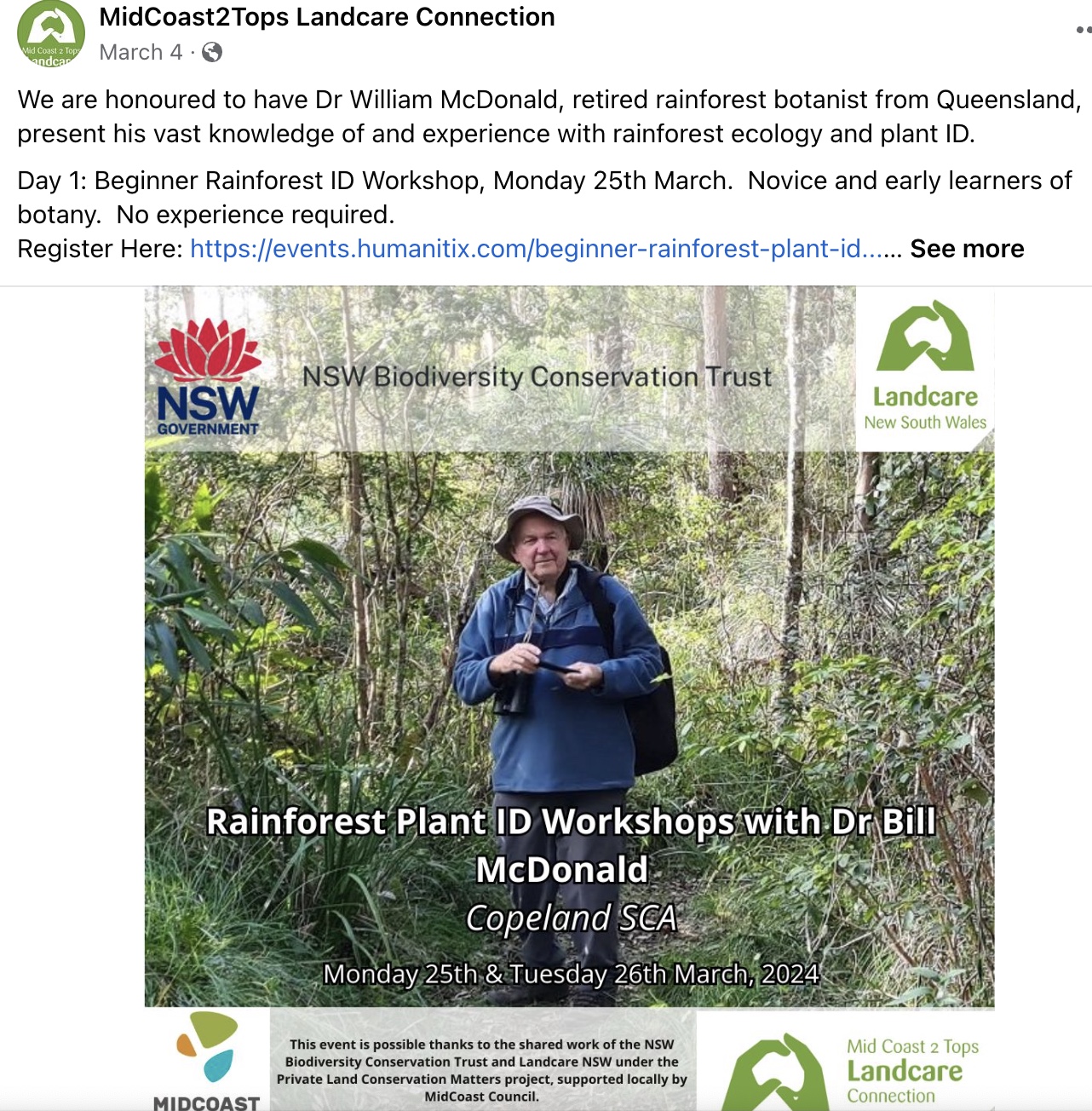
Event Topics
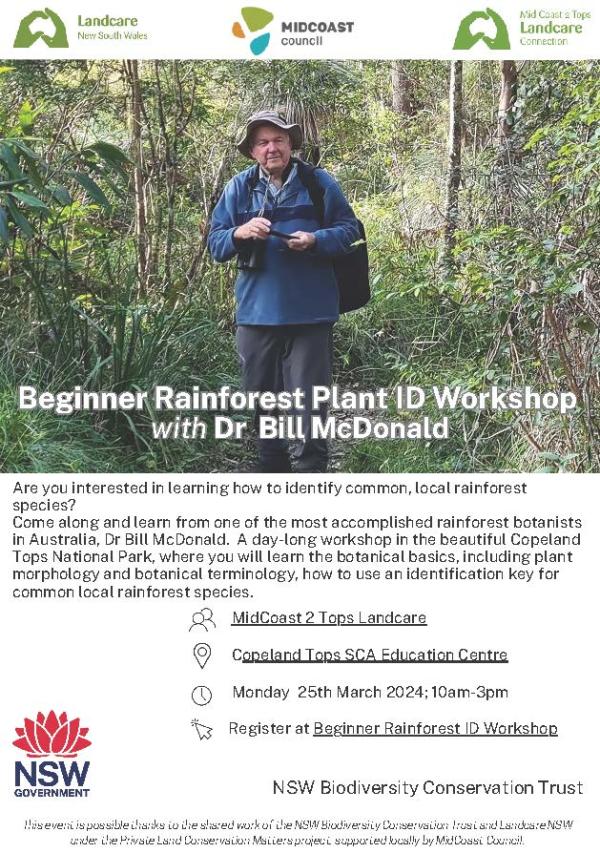
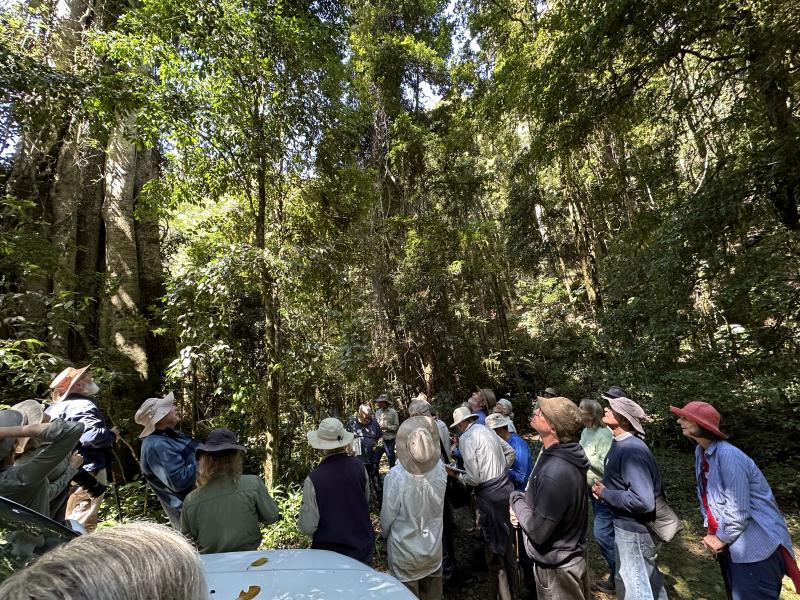
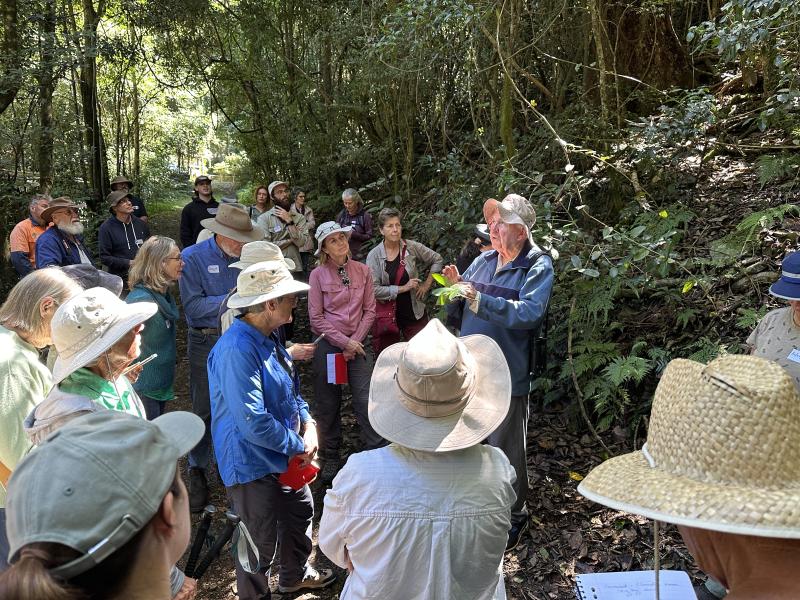
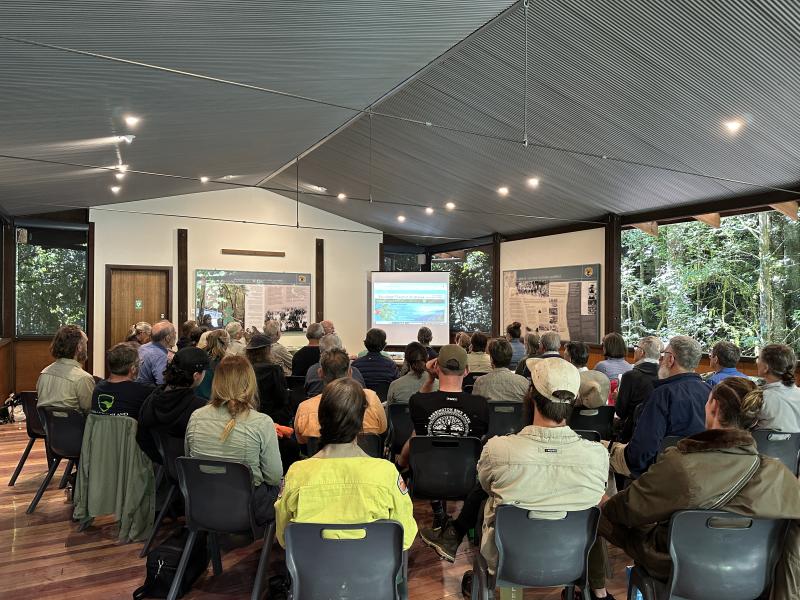
Event Outcomes
Growth in learning measure (Scale 1 - 100)
Summary of Attendee Feedback: Beginners Rainforest ID Workshop
Positive Aspects:
- Setting and Location:
- The rainforest setting was widely praised as superb, inspiring, and ideal for combining theory with practical learning.
- The convenience and beauty of the location enhanced the experience.
- Presenters and Content:
- The presenter was knowledgeable and engaging, and the content was appropriately tailored to participants' knowledge levels.
- Networking and Communication:
- Participants valued opportunities to network with landowners and bush regenerators.
- Pre-event communication (e.g., venue access, program details, and advice on requirements) was clear and helpful.
Constructive Feedback:
- Audibility and Group Size:
- The presenter spoke quietly, and some participants struggled to hear, especially in the large group setting. Suggestions included using a portable PA system or reducing group size.
- Workshop Duration:
- Several attendees suggested extending the workshop, potentially over two days, to allow more time in the field and for activities like using the rainforest ID key.
- Social Interaction:
- Attendees expressed a desire for structured opportunities to socialize, such as having seating or tables during lunch to encourage interaction.
- Equipment and Materials:
- A better-quality data projector was requested, as the resolution of the existing one made line drawings and text difficult to read.
- Some participants felt they missed out on fully engaging with prepared activities, such as keying out plants, due to time constraints.
This feedback highlights the event’s strengths, such as the rainforest venue and knowledgeable presenter, while suggesting ways to improve future workshops by addressing logistical challenges, extending the schedule, and facilitating greater participant interaction.
Summary of Attendee Feedback: "What Do You Want to Learn Next?"
Recurring Themes for Future Learning:
- Rainforest Regeneration and Management:
- Interest in workshops focused on rainforest regeneration techniques.
- Desire to learn more about assisting and improving rainforest habitats, including weed control and natural regeneration.
- Plant Identification:
- Participants want more in-depth plant ID courses, with a particular focus on hands-on fieldwork to deepen their understanding.
- Property-Specific Conservation:
- Attendees expressed interest in learning how to set priorities for habitat improvement on their properties, including when to use natural regeneration or supplementary planting.
- Conservation Education and Support:
- Continued education on conservation strategies, such as the benefits of conservation agreements and funding opportunities.
Additional Suggestions:
- Requests for ongoing support and advice, including partnerships with organizations like Landcare and the Biodiversity Conservation Trust (BCT).
- Acknowledgment of the quality and relevance of local workshops and encouragement to keep offering similar events.
Notable Comments:
- Praise for Isabelle Strachan’s efforts in organizing engaging and impactful workshops.
- A lighthearted but genuine interest in learning about funding opportunities for conservation efforts.
This feedback indicates a strong demand for continued education, support, and networking opportunities, with an emphasis on practical and property-specific conservation strategies.
